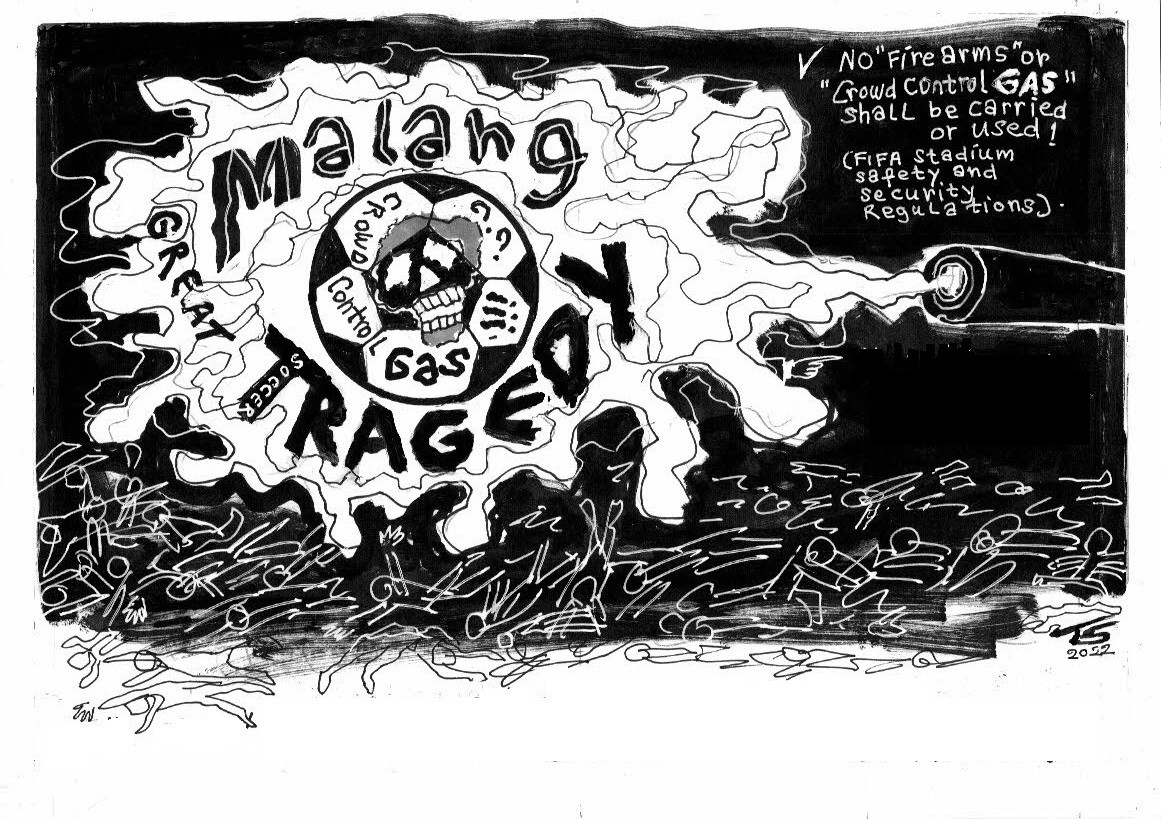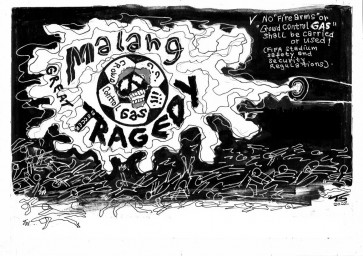Popular Reads
Top Results
Can't find what you're looking for?
View all search resultsPopular Reads
Top Results
Can't find what you're looking for?
View all search resultsStadium tragedy: Quo vadis, Indonesian soccer regulations?
Indonesia needs to review its safety and security regulations for sports stadiums, including revisiting the soccer bill proposed in 2009, while forming an independent team to investigate the Kanjuruhan Stadium disaster.
Change text size
Gift Premium Articles
to Anyone
N
othing can separate sports and supporters, especially in soccer, on which billions of fans worldwide invest their time, energy and money to support their teams. Driven by their emotional ties to their teams, supporters show their love through a variety of behavior, from cheering on them to engaging in acts of violence.
The Oct. 1 tragedy at the end of the match between Arema FC and archrival Persebaya Surabaya at Kanjuruhan Stadium in Malang, East Java, speaks volumes of the connection between sports and supporters. According to the police, 125 people were killed in the incident, making it the second deadliest soccer match in history.
Reports say the disaster started when some Arema supporters who were angry about their team’s defeat invaded the pitch, throwing objects. As more and more supporters followed suit, the police fired tear gas into the crowds, both on the pitch and in the stands. A stampede ensued as many people tried to escape the tear gas, but could not find enough exits.
The catastrophe has raised safety issues that the government, the soccer association, the police, supporters and the public at large have to take into consideration.
The safety and security of a soccer stadium depends not only on its design and management, but also a stadium risk assessment that requires well-knit coordination among all stakeholders in accordance with the guidelines of FIFA, the world governing body for soccer.
The risk assessment should include identification of where spectators, players, officials and/or other people are seated and of potential tensions between supporters. It should also anticipate unruly behavior among supporters, such as standing on seats, throwing objects, lighting fireworks, invading the pitch and inciting violence.
A contingency plan must be prepared that should include crowd control measures. In its guidelines, FIFA requires all stadiums to have an emergency plan in case a major incident occurs in or around the stadium. It is the responsibility of a country’s security authorities to ensure compliance with this requirement.



















